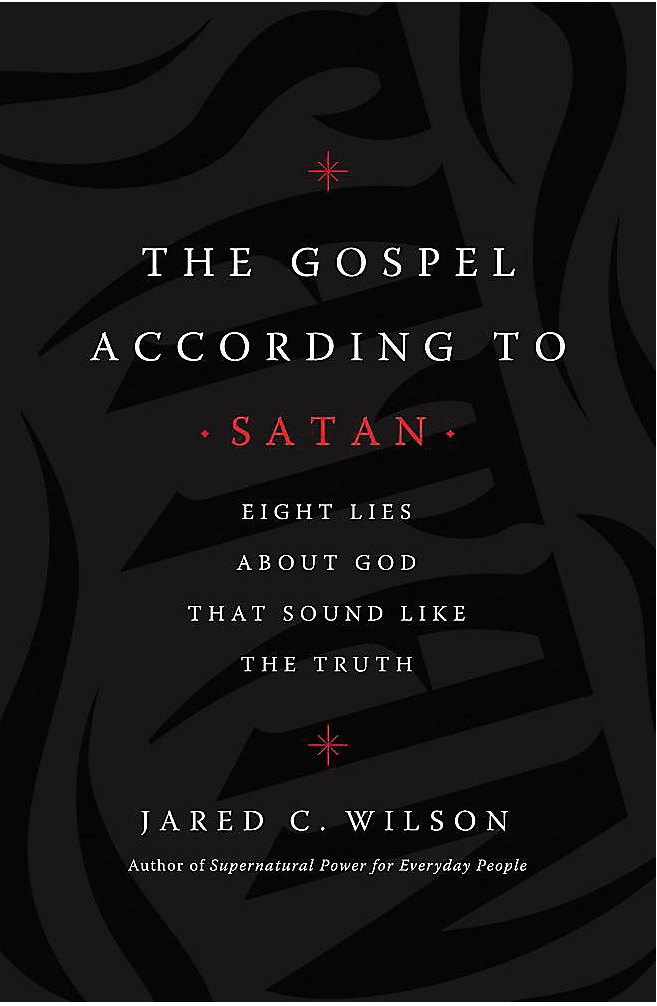
By Jared C. Wilson
According to Barna research, 82% of Americans believe that “God helps those who help themselves” is a Bible verse.
You may suggest this only confirms the biblical illiteracy of our post-Christian nation. But it doesn’t explain the reality that more than half of practicing Christians thought the same.
(It’s not a Bible verse, by the way.)
But maybe one of the reasons Christians project this idea onto the Bible is because it sounds true to our fleshly hearts.
The truth is that “God helps those who help themselves” is essentially a legalistic ethos. The worldview this lie represents is antithetical to the grace that makes Christianity unique and saving.
The truth is that “God helps those who help themselves” is essentially a legalistic ethos. The worldview this lie represents is antithetical to the grace that makes Christianity unique and saving. — @jaredcwilson Click To TweetThe very heart of true Christianity is opposed to the idea that God helps those who help themselves.
This slogan’s nod to God is a subterfuge from Satan. He would prefer if we never thought of God at all, but the next best thing is to think wrong thoughts about Him, thoughts that are not worthy of Him.
If our enemy cannot get us off the subject of salvation entirely, he will get us onto it in the wrong ways—namely, by introducing even a small measure of works into the salvation equation.
This lie has always been effective with religious people, for reasons that include a connection to the very first lie in the Garden of Eden. Satan desperately wants us to add a “plus” to the gospel of grace, because that detracts from Christ and his sufficiency.
“God helps those who help themselves” sounds stupid to the theology of my head, but it sounds true to the wonky theology of my flesh. When I am down in the spiritual doldrums, I’m tempted to believe it.
I am afraid that God doesn’t, won’t, can’t love me. That my approval before him is based on my religious output, and of course, I am fully aware that I can never do enough.
Then I’m afraid that by thinking such unbiblical thoughts, I’ve really messed up, and I might not even be a Christian at all.
You would think grace would be so appealing. The very idea that despite our inability to measure up to God’s glory, he freely and lovingly lavishes grace on us as a gift is refreshing and wonderful.
We cannot get this message anywhere else. No other religion or philosophy offering fulfillment, beauty, and enlightenment teaches that those things are given unilaterally by the God of grace. How amazing is that?
No other religion or philosophy offering fulfillment, beauty, and enlightenment teaches that those things are given unilaterally by the God of grace. — @jaredcwilson Click To TweetAnd yet if this truth is really that appealing, more people would jump at the opportunity to believe it, wouldn’t they? But we suspect it’s not true. Even those of us who believe it’s true struggle to live out that belief.
Our flesh yearns for works, for credit.
Paul’s letter to the Galatians may be the best short treatment on the radical intrusion of grace into the God-dishonoring world of legalistic religion.
The apostle is astounded that those who know about the free grace given in the good news of Jesus would abandon it. “Why in the world would you return to the slavery of works righteousness?” he wants to know (1:6; 5:1).
The Galatian church had become infiltrated by false teachers referred to as “Judaizers.” They were arguing that Christianity is made up of grace plus works—in this case, the works of the Jewish ceremonial law, namely circumcision and the dietary restrictions.
“Yes, yes, grace,” the Judaizers said, “but also you need to be extra religious. That is how you earn approval with God and stay united to Jesus.”
Through the “plausible arguments” (Col. 2:4) of the Judaizers, the devil tempted many professing believers to make a shipwreck of their faith.
While Paul is astonished by the Galatians’ preference for works righteousness over the free gift of Christ’s righteousness, he knows that it is a tempting lure.
He knows it “makes sense.” And he knows it crouches at the door of every human heart, that no person is immune to its allure.
In Galatians 6:15, Paul even warns the ones restoring those who’ve fallen prey to the heresy to watch out themselves, so they won’t also be tempted into it.
It seems odd to think that if you were teaching grace to legalists, you’d be tempted to become a legalist yourself, but I am here to tell you it is a very real danger.
Once I was giving a guest lecture in a college classroom on gospel-centered ministry. During the Q&A, a student asked me one of the most profound and penetrating questions I’ve ever received in such an environment.
He said, “I just want to know one thing: Do you preach the gospel to yourself as well as you do to us?”
I stopped for a second, weighing my options. My approval-meter kicked in, and I wanted to be seen as impressive. But I realized the truth might be more helpful to him—and to me.
I replied, “No, I don’t. I am much better at reminding others of grace than resting in it myself.”
For many Christian preachers and teachers, there is a real danger of giving grace to themselves while withholding it from others. — @jaredcwilson Click To TweetFor one thing, we can become inordinately proud of being “grace people.” And when we do that, we’ve instantly begun eroding our own credibility, perhaps not before others but certainly within our own hearts.
For many Christian preachers and teachers, there is a real danger of giving grace to themselves while withholding it from others.
All believers are in great danger of this disobedience to the Great Commandment. But for many there is also danger in preaching with our mouths what we don’t believe in our hearts.
And yet there is grace even for that. Amazing. We find it in the true gospel of God saving those who cannot, despite their best intentions and efforts, help themselves.

Jared C. Wilson
Jared is author in residence of Midwestern Seminary, assistant professor of pastoral ministry at Spurgeon College, general editor of For the Church, and director of the Pastoral Training Center at Liberty Baptist Church in Kansas City, Mo.
This article was excerpted with permission from The Gospel According to Satan: Eight Lies about God that Sound Like the Truth.








